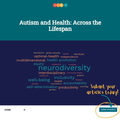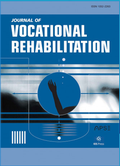News / Document Search Results

10/24/2023
AUCD Partners with USAging
AUCD is thrilled to be a partner with USAging for the Aging and Disability Vaccination Collaborative, thanks to vital funding from the Administration for Community Living. AUCD's selected Network Centers and Programs are providing needed flu and COVID-19 shots to people with disabilities and older adults to help keep them healthy.

10/4/2023
Call for Comments: New 504 Regulations
AUCD is collecting comments from our network on the Notice of Proposed Rulemaking (NPRM) from the U.S. Department of Health and Human Services (HHS) regarding the proposed regulations for Section 504 of the Rehabilitation Act. The proposed rule, "Nondiscrimination on the Basis of Disability in Health and Human Services Programs and Activities", will strengthen protections, advance equity, and bolster protections for people with disabilities while participating in any service or activity that receives funding from HHS.

8/24/2023
Publishing Opportunity with AIR-P Cureus Channel
The AIR-P would like to share the Autism and Health: Across the Lifespan channel, where our authors can publish articles without cost and at a faster rate than is typically available through the traditional scholarly publication process.

6/20/2023
Impact: 35 Years of MN UCEDD's Flagship Publication
Impact magazine is the flagship publication of the MN UCEDD, highlighting what matters to people with disabilities for 35 years. This issue reconnects with voices from the past and looks ahead to the issues of the future.
6/20/2023
Ohio State University UCEDD Announces Intellectual Disability and Mental Illness Prevalence Study in Collaboration with OHSU
Intellectual disability (ID) confers increased risk of mental illness; however, a robust prevalence study of the occurrence of mental illness in adults with intellectual disability has not been conducted in the United States. Prevalence estimates are based on previous research in the UK (Cooper, Smiley, Morrison, Williamson, & Allan, 2007; Stromme & Diseth, 2000) and on US studies that have used convenience samples (Fletcher, Barnhill, & Cooper, 2016; Reiss, 1994; Rojahn & Tasse, 1996; Smiley, 2005;) suggesting that mental illness occurs in 30% to 50% of adults with intellectual disability. Co-occurring mental illness is associated with an increased intensity and complexity of support needs compared to adults with ID without comorbid psychiatric disorders (Borthwick-Duffy, 1994; Rojahn, Matson, Naglieri, & Mayville, 2004; Tasse & Wehmeyer, 2010). A systematic national prevalence study is needed to guide federal policy and programs to address mental health problems in adults with intellectual disability.

5/25/2023
Perspectives on the Implementation of Pre-ETS Services: Identification of barriers and facilitators to early career planning for youth with disabilities
There are differences between and within states in the delivery of Pre-Employment Transition Services (Pre-ETS) for students with significant disabilities early in their career planning process. This complicates the delivery of services for these youth with disabilities (YWD) and leaves gaps in communication between families, educators, and vocational rehabilitation (VR) counselors.

5/25/2023
Researchers Call for Systemic Changes to Improve Career Prospects of Young People with Disabilities
A deeper level and different kind of coordination, collaboration, and cooperation are needed to narrow the gap in employment opportunities between youth and young adults with and without disabilities. Experts present strategies to challenge the status quo that young people with disabilities face in the transition from school to employment in a special issue of the Journal of Vocational Rehabilitation.

5/17/2023
Vanderbilt Kennedy Center (TN IDDRC, UCEDD, LEND) Member Works to Improve Sleep Assessment in Down Syndrome Research
Vanderbilt Kennedy Center (VKC) member Sarika Peters, Ph.D., received a VKC Director's Strategic Priorities Grant to determine the feasibility of use of a wearable sensor to assess sleep in children (ages 4-10 years) with Down syndrome. Down syndrome is estimated to occur in 1 out of 700 babies and is associated with many co-occurring conditions including obstructive sleep apnea (OSA). OSA impacts between 50-79 percent of individuals with Down syndrome and the American Academy of Pediatrics recommends screening for OSA in children with Down syndrome starting at age 4.

5/3/2023
EDI-Self-Report (EDI-SR) Survey
The purpose of this new research study is to create a questionnaire known as the EDI-Self-Report (EDI-SR). This project is funded by the Eunice Shriver National Institute of Child Health & Human Development (NICHD). The EDI-SR was designed to measure emotional experiences in autistic teens and adults and teens and adults with other intellectual and developmental disabilities (IDD). This study is enrolling individuals ages 11 and older who are autistic or have an intellectual or developmental disability (IDD) and their parents/caregivers, as well as individuals without these diagnoses. Individuals must be current United States residents to participate.
4/5/2023
ICI's Think College Launches Accreditation Agency for Inclusive Higher Education
Think College, a center within the Institute for Community Inclusion (ICI) at the University of Massachusetts Boston, announced the launch of the Inclusive Higher Education Accreditation Council (IHEAC), a new accrediting agency for inclusive postsecondary programs for students with intellectual disability (ID).

3/16/2023
UNMC Munroe Meyer Institute LEND Trainees Collaborate with Special Olympics Nebraska
University of Nebraska Medical Center (UNMC) physical therapy students and Munroe Meyer Institute (MMI) LEND trainees partnered with Special Olympics Nebraska for their LEND Community Learning and Leadership project. They were involved with helping Special Olympics Nebraska (SONE) provide a variety of services to the community, their largest being a 6-week Young Athletes Camp hosted at a local elementary school.

10/4/2022
Changing the Way We Care for Adults with Intellectual and Developmental Disabilities
To support clinicians and health system leaders in understanding and combating the barriers adults with intellectual and developmental disabilities face when accessing health care, AUCD has partnered with Community Catalyst, clinicians and self-advocates to produce this series of two educational videos.

9/6/2022
Building Community Capacity for Accessible Vaccine Events
The UCEDD in the Institute on Development and Disability at OHSU worked with the Oregon Health Authority to create resources for vaccine events to be more inclusive. They made videos, guides, and checklists to go with a boxed kit of accessibility tools. This will help people with disabilities and people who speak languages other than English get vaccines in their communities. There are more videos and resources coming soon.
8/1/2022
Engineering non-hallucinogenic versions of psychedelics to treat psychiatric conditions
By David E. Olson, Associate Professor, Department of Chemistry and Department of Biochemistry & Molecular Medicine
Psychedlic drugs like MDMA and LSD can promote neuroplasticity and help treat some mental illnesses in autistic adults. To lessen the risk of dangerous side effects, the Olson Lab created safer, non-hallucinogenic psychedelics that show promise in models.
7/27/2022
Autism characteristics in individuals with Down syndrome
Amanda Dimachkie Nunnally, PhD, Postdoctoral Research Scholar, UC Davis Mind Institute
There is still much to be understood about the presentation of autism symptoms in individuals with Down syndrome, as some of the core characteristics of autism may overlap with intellectual disability. Individuals with Down syndrome and co-occurring autism tend to have more severe rigid and repetitive behaviors and greater challenges with social communication than do individuals with Down syndrome alone. However, the degree to which symptoms can be attributed to each condition remains understudied.
7/27/2022
Decline in looking at faces may signal onset of autism in infants
By Devon Gangi, Assistant Project Scientist, Department of Psychiatry and Behavioral Sciences
A new study from UC Davis Mind Institute supports earlier findings that children who were diagnosed with autism at age 3 had a decreased level of eye gaze as infants compared to children without autism. This gives new insights into development trajectories and may help children get identified earlier.







